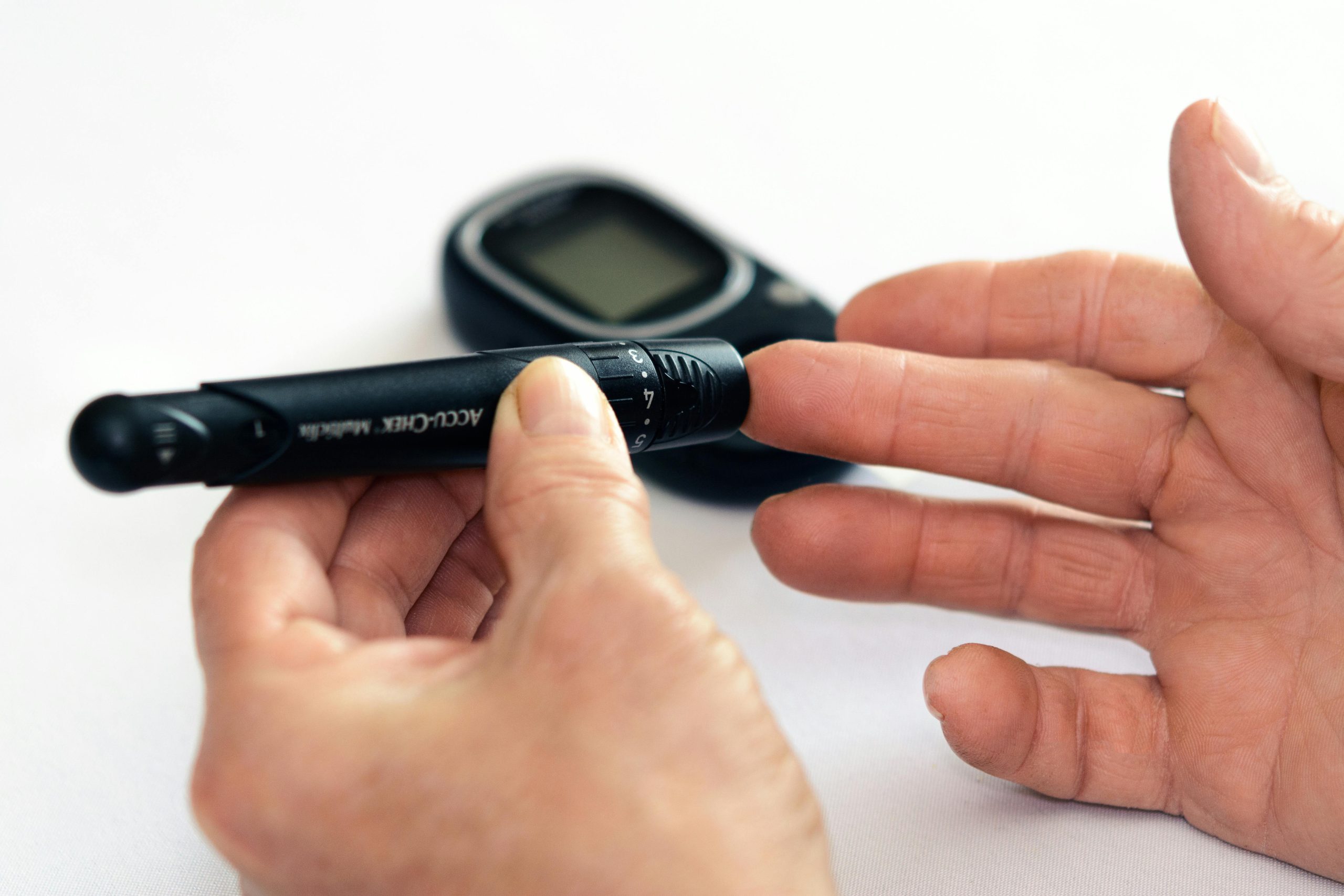Endocrinology
Expert Support for Endocrine Health

Pharmaconic works hand-in-hand with providers to deliver specialized medication management for diabetes, thyroid conditions, and adrenal disorders. From insulin therapy to hormone replacement, we help ensure every treatment plan is optimized for each patient’s needs. Our team also offers clear, compassionate education on blood sugar monitoring and lifestyle changes—empowering patients to take control of their health and achieve better outcomes every day.
- Hormone Health
- Integrated Support
- Empowered Management

Endocrinology
Diabetes
Diabetes is a chronic condition characterized by elevated blood glucose levels resulting from insufficient insulin production or insulin resistance. Common symptoms include excessive thirst, frequent urination, fatigue, and blurred vision. Proper management is crucial to prevent complications such as neuropathy, retinopathy, and cardiovascular disease.
Monitoring
Blood glucose monitoring
- Blood glucose meters and continuous glucose monitors (CGMs)
- Regular testing: Regular HbA1c testing to assess long-term control
Regular Testing
- Regular HbA1c testing to assess long-term control
Non-Pharmacological Options
Dietary Management
- Low-glycemic, balanced meals to stabilize blood sugar
Exercise
- Regular physical activity to improve insulin sensitivity and cardiovascular health
Weight Management
- Achieving and maintaining a healthy weight to reduce insulin resistance
Stress Reduction
- Techniques like yoga or meditation to minimize blood sugar fluctuations
Medications
Oral Antidiabetics
- Metformin, Glipizide, Sitagliptin
Insulin Therapy
- Rapid-acting (Lispro, Aspart), Long-acting (Glargine, Detemir)
GLP-1 Agonists
- Semaglutide, Liraglutide, Dulaglutide
SGLT-2 Inhibitors
- Empagliflozin, Dapagliflozin, Canagliflozin
Endocrinology
Thyroid Disorders
Thyroid disorders result from the overproduction (hyperthyroidism) or underproduction (hypothyroidism) of thyroid hormones, affecting metabolism and overall health. Symptoms may include weight changes, fatigue, mood swings, and palpitations.
Treatments
Monitoring
- Routine TSH, T3, and T4 testing: to assess hormone levels
- Monitoring for potential side effects: including weight changes or heart irregularities
Non-Pharmacological Options
Dietary Adjustments
- Ensure adequate intake of iodine and selenium to support thyroid function
Exercise
- Low-impact activities to manage weight and reduce stress on the heart
Stress Management
- Techniques such as breathing exercises to minimize thyroid-related anxiety
Sleep Hygiene
- Maintaining regular sleep patterns to support metabolic function
Medications
Hypothyroidism
- Levothyroxine, Liothyronine
Hyperthyroidism
- Methimazole, Propylthiouracil
Beta Blockers
- Propranolol to manage heart rate in hyperthyroidism